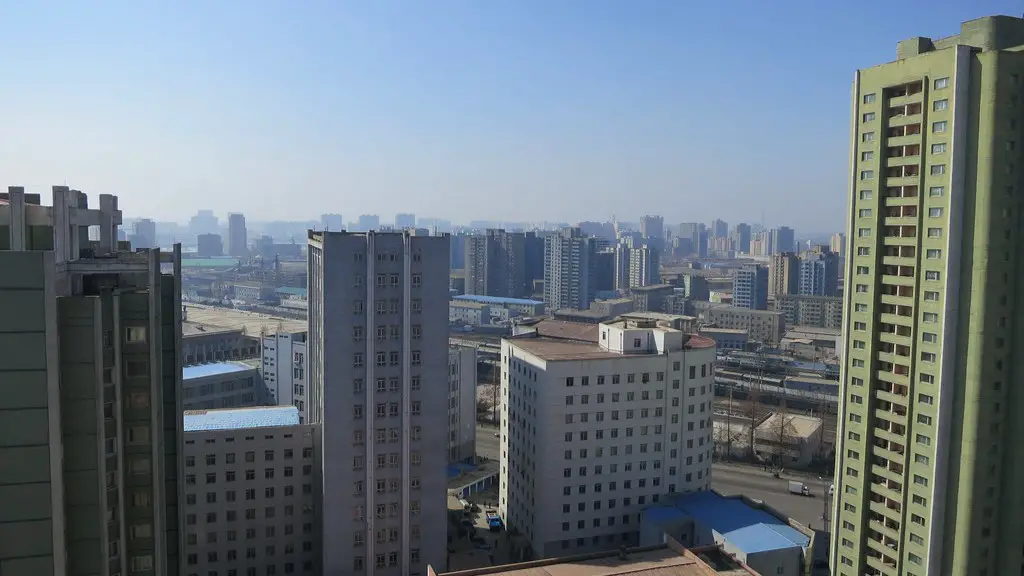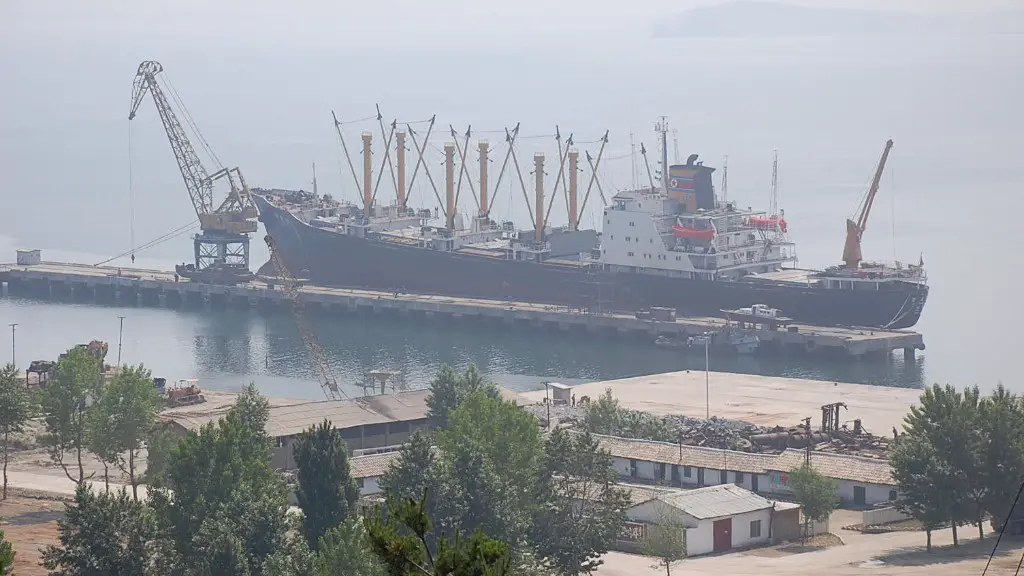Military Might
North Korea is home to the fifth largest military in the world, with an estimated 1.2 million active troops and another 7.7 million reserve troops. The military is equipped with modern Soviet and Chinese weapons and is considered one of the most highly trained and formidable forces in the world. The country also has a large and much-feared arsenal of short and long-range nuclear weapons. The exact number and types of nuclear weapons is unknown, but experts believe North Korea has the capability to launch a nuclear strike.
North Korea’s leader, Kim Jong-un, is known to be a ruthless and unpredictable dictator who is not afraid to act on his impulses. His government is known to be oppressive and authoritarian and has a long history of human rights abuse. Furthermore, North Korea has been known to use assassination and terrorism as a way to maintain control and suppress dissent. As a result, many view North Korea as a dangerous and aggressive nation, particularly due to its unpredictable behavior and large arsenal of weapons.
International Isolation
One of the reasons North Korea is so dangerous is because the country is almost completely isolated from the international community. North Korea’s leaders have fostered an atmosphere of suspicion, making it difficult for other countries to establish and maintain positive diplomatic relationships. As a result, North Korea has few allies, and the few countries it does have friendly relations with are mostly authoritarian regimes in the region.
Further isolation has been caused by sanctions imposed by the international community in an attempt to get North Korea to abandon its nuclear ambitions. North Korea has been subject to multiple rounds of UN sanctions and other economic measures from the US and its allies. These sanctions have had an economic impact, but they have also increased the sense of isolation and mistrust between North Korea and the rest of the world.
Propaganda Machine
North Korea’s government is known for its blatant use of propaganda to manipulate public opinion and maintain control over the population. The government controls the media, which is largely used to spread its own message and hide the truth. North Korea is also known to use powerful psychological tactics, such as creating a sense of fear and paranoia in the population by emphasizing the threat posed by other countries and creating a cult of personality around its leader. As a result, North Koreans are encouraged to be loyal to the regime and often believe any information that is released by the government.
North Korea’s use of propaganda has enabled it to remain isolated from the rest of the world and has contributed to the feeling of fear and mistrust. Furthermore, the country’s leaders can use this propaganda to gain and maintain control of the population, which increases the threat North Korea poses to its neighbors and the international community.
Cyber Attacks
North Korea is also known for its cyber espionage and cyber warfare capabilities. The country has become increasingly sophisticated in its use of technology, and its cyber capabilities have been used in attacks against other countries. North Korea has been linked to high-profile cyberattacks, such as the 2014 Sony Pictures hack and the WannaCry ransomware attack of 2017. Reports suggest that the North Korean government has used cyberattacks to raise funds, steal military information, and attack critical infrastructure.
The international community is increasingly concerned about North Korean cyber activities, and many countries have taken steps to strengthen their cybersecurity. However, North Korea’s cyber capabilities and its ability to launch cyberattacks with impunity remains a major threat. This makes North Korea an even more dangerous and unpredictable actor on the world stage.
Geopolitical Position
North Korea’s geopolitical position also makes it a dangerous actor on the world stage. The country is located in the heart of East Asia, which is a region of high political tension. North Korea’s nuclear program and its willingness to conduct missile tests have created instability in the region, and its aggression towards its neighbors has angered many in the international community.
Furthermore, North Korea’s proximity to the US, South Korea and Japan makes it an unpredictable and dangerous adversary. The US, South Korea and Japan have all expressed concern over North Korea’s nuclear program and its aggressive behavior, and the US has been vocal in its support for UN sanctions against the country. This has led to a tense relationship between North Korea and the US.
Regime Change
North Korea’s dangerous behavior is also a concern for the international community because of the potential for regime change. If North Korea’s government were to collapse, it could lead to a period of instability in the region and could also cause a humanitarian crisis. Given the unpredictable nature of North Korea’s leadership, it is difficult to predict what would happen if the regime was to collapse.
North Korea’s government has invested heavily in its military and nuclear program and has shown a willingness to use these weapons to maintain control. This makes any potential regime change in North Korea a particularly dangerous prospect. As a result, many in the international community have urged North Korea to abandon its nuclear program and work towards peace and stability in the region.
Caution Required
North Korea’s unpredictable behavior and large arsenal of weapons make it a dangerous and unpredictable actor on the world stage. The country’s history of human rights abuse, its use of propaganda, and its cyber espionage capabilities all add to the sense of fear and mistrust. Furthermore, its geopolitical position and the potential for regime change make it an even more dangerous prospect.
Given North Korea’s behavior and capabilities, it is clear that all countries should proceed with caution when dealing with the country. The international community should continue to work towards peace and stability in the region, but it should also remain vigilant and prepared for any possible aggression on the part of North Korea.



